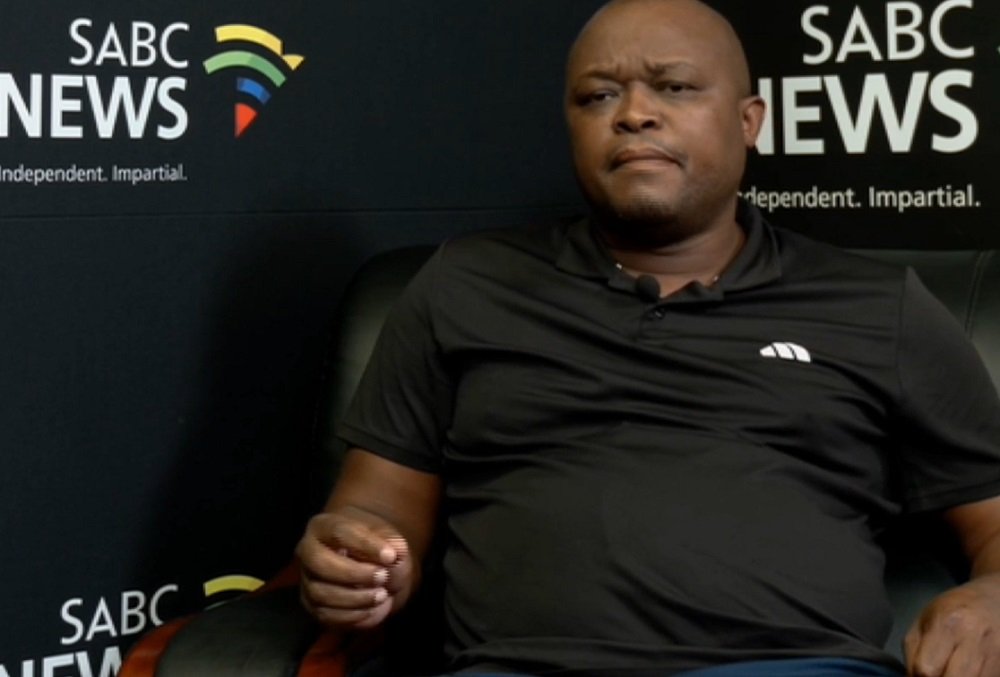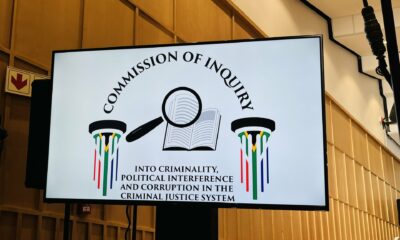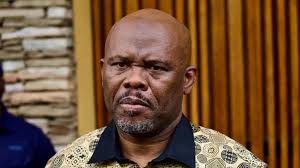News
“You Can’t Kick Me Out”: Brown Mogotsi Insists He’s Still ANC, Party Says Otherwise

Brown Mogotsi, a businessman from the North West whose name has surfaced in high-profile inquiries is publicly fighting the ANC’s claim that he is no longer a party member. The party says his membership expired; Mogotsi says the opposite, telling SABC News he remains “a member in good standing” with renewal only due at the end of October.
This spat is more than a billing dispute over subscriptions. It cuts to one of the ANC’s thorniest internal dilemmas: who has the authority to police membership, and how should the party handle members linked, however indirectly, to serious criminal allegations?
Two versions of the same story
Last week the ANC issued a blunt statement: membership records show Mogotsi’s membership had expired and he is therefore not an ANC member. The statement also tied into wider party anxieties, noting allegations that some individuals, including Mogotsi, were linked to organised criminal activity.
Mogotsi’s response was immediate and unequivocal. He told reporters he had communicated with his branch and that his membership would only lapse at the end of October. He rejected any suggestion that ANC secretary-general Fikile Mbalula could unilaterally strip him of membership on the basis of allegations presented by Lt-Gen Nhlanhla Mkhwanazi to the Madlanga commission.
“I have seen those communications and utterances … and let me confirm something to you, I am a member of the ANC in good standing,” Mogotsi said.
The rules and the gray areas
The ANC constitution, reportedly, sets narrow grounds on which the secretary-general may terminate membership essentially where membership was obtained invalidly or where a disciplinary committee has found misconduct and recommended expulsion. Non-payment of subscriptions for three consecutive months also strips someone of “member in good standing” status.
That framework leaves open tricky questions. If a branch disputes national records, which side gets final say? And can public allegations especially those aired at a commission of inquiry, trigger internal processes that lead to suspension or removal before a party disciplinary hearing?
For Mogotsi, the story is procedural: branches must be consulted and the party’s own steps followed. For critics inside the ANC, including Mr Mbalula, the case is instead emblematic of a broader rot, what he has described as criminal networks exploiting party structures for personal gain.
Who is Mogotsi connected to and why it matters
Mkhwanazi told the Madlanga commission that Mogotsi has links to Vusimuzi “Cat” Matlala, a controversial businessman facing several criminal charges. Both men have been mentioned in the context of alleged networks that intersect with prominent political figures, including, the commission was told, suspended police minister Senzo Mchunu.
Those associations are why this is not simply a membership tiff. If the party is seen as sheltering members who are alleged to be involved in criminality or who wield undue influence, it risks reputational damage and internal fragmentation especially in provinces such as the North West, where local power and patronage networks are often tightly woven into party politics.
Public reaction: split and loud
On social media the reaction was predictable and polarized. Some users framed Mogotsi as a victim of overreach an ordinary member being publicly tried before any party or court has found wrongdoing. Others welcomed strong action from party leadership and argued the ANC must be ruthless about removing bad actors who sully the organisation’s name.
What is clear is that this episode has fed into an already fierce public conversation about the ANC’s internal discipline and whether it can cleanse itself of criminal elements without becoming mired in factional score-settling.
A fresh angle: rules vs. optics
The Mogotsi standoff illuminates a wider reality: the ANC’s processes are as much about legalistic rules as they are about optics. Even if the party follows its constitution to the letter, the public will still judge it by outcomes. A paper-based “membership expired” is not the same as decisive, transparent disciplinary action and for voters fatigued by corruption scandals, optics matter.
If the ANC wants to restore confidence it will need a two-pronged approach: follow due process inside the party, and simultaneously communicate clearly why decisions are made or why action may be delayed so they’re not read as selective or politically motivated.
What’s next?
Expect Mogotsi to press his claim at branch level and potentially through party structures. The ANC will face pressure to show its handling of the matter is fair and consistent, not reactive. And whatever the internal outcome, the issue will almost certainly continue to be raised at inquiries and in the court of public opinion, keeping the spotlight on how the ruling party polices its own.
Would you like a short timeline sidebar (2018–2025) showing when Mogotsi’s name has surfaced in public inquiries and party disputes?
{Source: The Citizen}
Follow Joburg ETC on Facebook, Twitter , TikTok and Instagram
For more News in Johannesburg, visit joburgetc.com



























